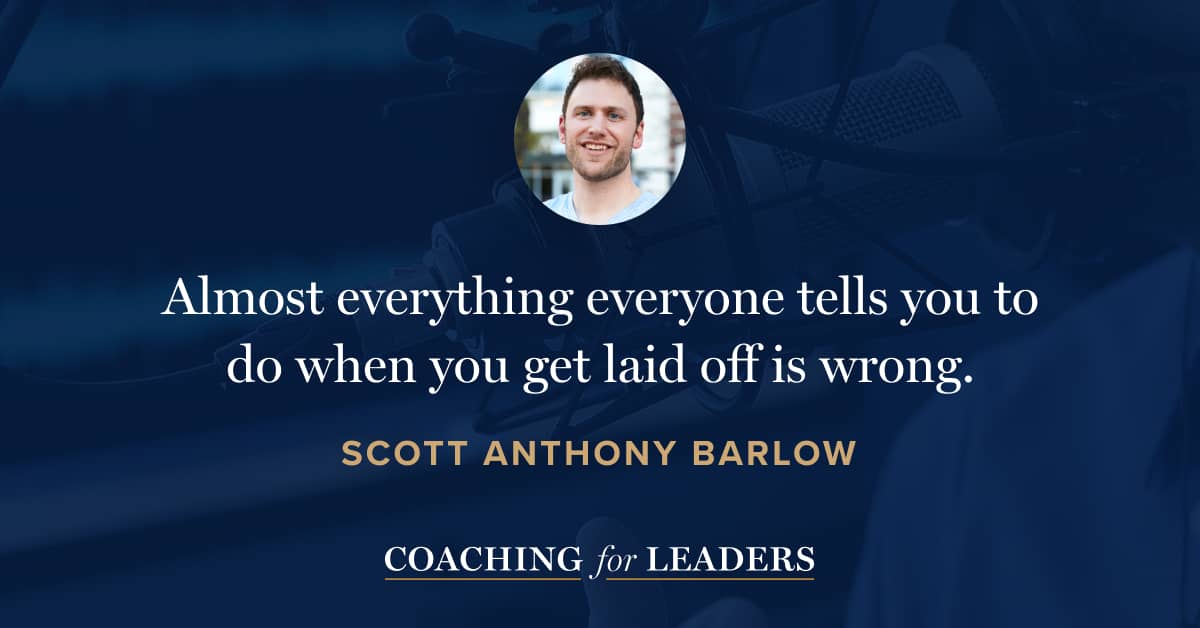Scott Anthony Barlow: Happen to Your Career
Scott Anthony Barlow is CEO of Happen To Your Career and host of the Happen to Your Career podcast. His team and him are focused on helping people find the work they love. He’s also the author of the book, Happen to Your Career: An Unconventional Approach to Career Change and Meaningful Work*.
You’ve been laid off, or someone close to you is navigating that reality right now. A lot of the first things we think to do after a layoff are wrong. In this episode, Scott and I explore what to avoid…and more importantly, where to begin anew.
Key Points
- Most people underestimate the time it takes to make a transition to the next, right position.
- Submitting tons of applications, networking everywhere, and telling everyone that you’re looking feels productive, but is often either incomplete or a waste of time.
- Give yourself the space to grieve. Spend time with the people who care about you.
- This didn’t happen to you, it happened for you. Whether objectively true or not, this mindset will help you be intentional about next actions.
- Hyperfocus your targeting by creating a master resume and also considering backdoors to opportunities.
- Decide when to hire help by using math – how much will expertise help speed up the process and/or help you land a higher salary?
Resources Mentioned
- Happen to Your Career: An Unconventional Approach to Career Change and Meaningful Work* by Scott Anthony Barlow
Interview Notes
Download my interview notes in PDF format (free membership required).
Related Episodes
- Craft a Career to Fit Your Strengths, with Scott Anthony Barlow (episode 424)
- How to Nail a Job Transition, with Sukhinder Singh Cassidy (episode 555)
- How to Respond When You Get Triggered, with Sally Helgesen (episode 620)
Expert Partner
In this midst of a layoff? Feeling stagnant in your current role? Scott Barlow and his team may be able to help as official partners of Coaching for Leaders. To discover more about how his team can support you, get in touch on our expert partners page.
Discover More
Activate your free membership for full access to the entire library of interviews since 2011, searchable by topic. To accelerate your learning, uncover more inside Coaching for Leaders Plus.





